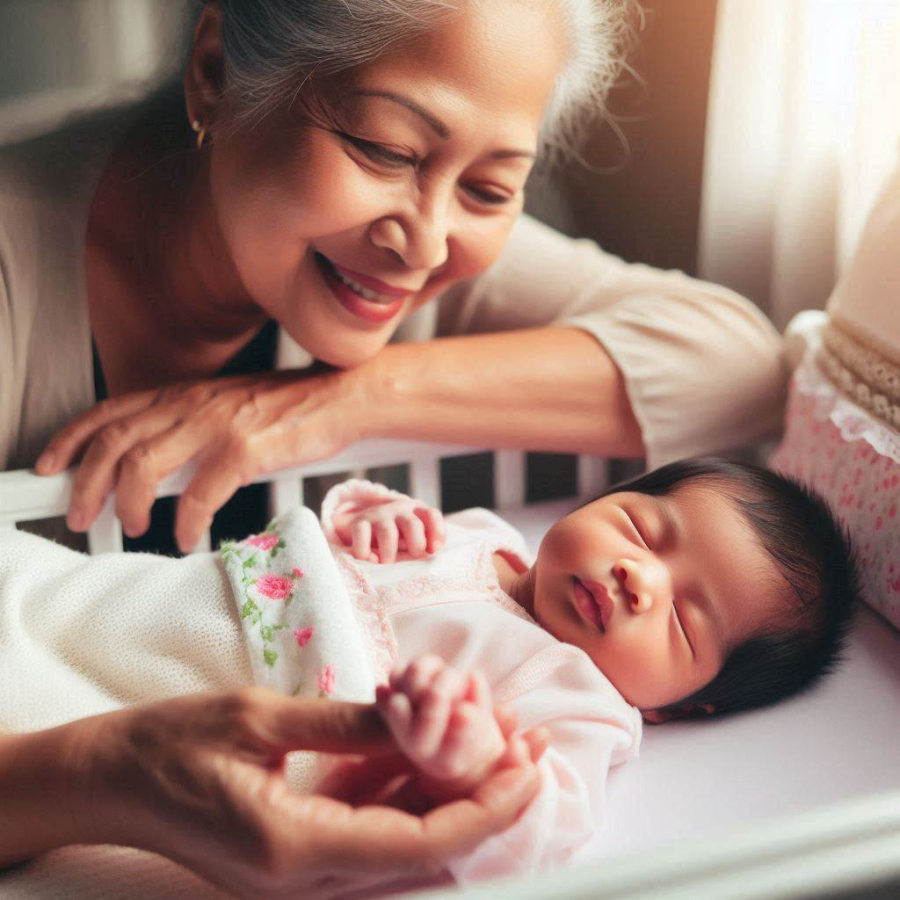The discussion around whether young children should co-sleep with their parents or grandparents often sparks differing opinions. While some argue that co-sleeping with grandparents can negatively impact a child’s physical and mental development, others suggest that sleeping with the mother promotes a more positive personality development.
However, a Chinese expert in child-rearing has recently refuted the latter view by addressing three crucial questions on this topic.
Do young children truly form attachments to anyone they sleep with?
A story shared by a child-rearing expert illustrates this point. After giving birth, his sister decided to hire an experienced nanny to help with childcare. While the sister took care of the baby during the day, the nanny was in charge at night. After three months, the baby barely recognized his mother and was only attached to the nanny, causing the sister concern.
Upon consulting other experts, she realized that infants tend to form bonds with those they sleep with. For young children, recognition often starts with scent. The baby in this case was usually lulled to sleep by the nanny’s singing and movement around the room. The nanny’s breath became a familiar scent to the baby. Had this situation continued, the child might have associated this “scent” with “mother,” leading to a closer bond with the nanny.

Infants tend to form bonds with those they sleep with
To illustrate this point, the expert mentioned the “imprinting effect” experiment in psychology. Researchers divided newly hatched ducks into two groups: Group A was hatched by a duck mother, while Group B was hatched artificially. Ducks in Group A would cling to their duck mother when in danger, whereas ducks in Group B would turn to the researcher, as they imprinted them as their “duck mother.”
Similarly, young children can become more dependent on their post-birth caregivers, providing a scientific basis for the fact that the bond formed with co-sleepers is significant.
How does co-sleeping with the mother impact a child’s personality?
Many parents wonder if co-sleeping with their child can contribute to improving their personality. According to the expert, a child’s personality is shaped by multiple factors, including genetics, environment, and family relationships.
One reason why many mothers believe that co-sleeping with their children makes them better behaved than sleeping with older individuals is the frequency of mother-child interaction. When children are physically close, they tend to listen and be influenced by their mothers, which can lead to the development of similar personality traits.

Mother-child interaction plays a role in personality development
However, it’s important to note that personality formation and development in children is a complex and continuous process that cannot be solely attributed to a specific event, such as co-sleeping. There is currently no clear scientific evidence proving that children who co-sleep with their mothers will have better personalities than those who don’t. In reality, determining a child’s personality is a broad issue, and the influence of co-sleeping is just one part of the multitude of factors that contribute to their personality development.
Therefore, while co-sleeping with the mother may have some impact, it is not the sole determinant of a child’s personality development.
What about the effects of co-sleeping with older individuals on a child’s health?
Some believe that co-sleeping with grandparents can affect a child’s physical and mental health. However, the expert argues that this is challenging to prove.
For instance, a father shared that his daughter co-slept with her grandmother until she was three years old. During that time, she remained healthy and rarely fell ill, only visiting the hospital for vaccinations. This example contradicts the notion that co-sleeping negatively impacts children’s health.
There are online concerns about older individuals requiring more oxygen during sleep, potentially leading to oxygen deprivation in children. However, there is no scientific basis to support that older individuals need more oxygen than younger adults, including the parents of the children in question.

Online concerns about oxygen deprivation are unfounded
Additionally, some worry that older individuals may breathe out bacteria, making children more susceptible to illness. In reality, children are more prone to respiratory illnesses than older individuals. Furthermore, even if children don’t co-sleep with their grandparents, they still interact through daily play and conversation, making it impossible to avoid potential germ transmission entirely.
Co-sleeping with older individuals is not the primary factor determining a child’s health. Instead, parents should focus on spending quality time with their children, creating a sense of security and stability, which will ultimately benefit their overall development.
Mothers’ Need for Awareness of Dual Activity of Breastfeeding and Watching TV
In the contemporary world, in which technology pervades our lives, some mothers tend to soothe their babies through nursing while simultaneously watching television. Although this practice may not appear to affect the infant, studies show that it can in fact have dire repercussions on the baby’s well-being, both in terms of physical health and mental growth. In this article, we will look at the possible reasons for this activity and its potential outcomes.














